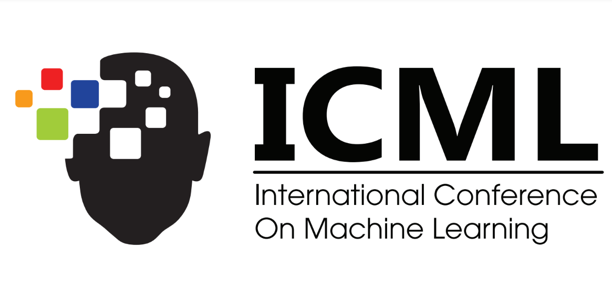
ΑΙhub.org
ICML 2020 Test of Time award

The International Conference on Machine Learning (ICML) Test of Time award is given to a paper from ICML ten years ago that has had significant impact. This year the award goes to Niranjan Srinivas, Andreas Krause, Sham Kakade and Matthias Seeger for their work “Gaussian Process Optimization in the Bandit Setting: No Regret and Experimental Design“.
The award was announced by the conference chairs on 1 July:
We are very pleased to announce that the #icml2020 Test of Time award goes to
Gaussian Process Optimization in the Bandit Setting: No Regret and Experimental Design
by Niranjan Srinivas, Andreas Krause, Sham Kakade and Matthias Seegerhttps://t.co/kDuE8kwBx6
— Hal Daumé III (@haldaume3) July 1, 2020
On their award page the ICML Test of Time Award committee members explain the significance of the paper:
This paper brought together the fields of Bayesian optimization, bandits and experimental design by analyzing Gaussian process bandit optimization, giving a novel approach to derive finite-sample regret bounds in terms of a mutual information gain quantity. This paper has had profound impact over the past ten years, including the method itself, the proof techniques used, and the practical results. These have all enriched our community by sparking creativity in myriad subsequent works, ranging from theory to practice.
The authors react to the good news:
I'm really honored to announce that my first-ever research publication, published in ICML 2010, has won the test-of-time award at ICML 2020. Many thanks to my amazing collaborators, @arkrause, @shamkakade, and Matthias Seeger. https://t.co/ARxbRb1x2k
— Niranjan Srinivas (@niranjan628496) July 2, 2020
Thanks so much to the awards committee for this great honor! This was a true team effort with amazing collaborators Niranjan, @ShamKakade6 and Matthias! Also a big thank you to the entire ICML organizers for their hard work!! https://t.co/awFzev5i9T
— Andreas Krause (@arkrause) July 2, 2020
In a special award session the authors gave a plenary talk describing their work. To summarise their presentation they took a brief look back over the ten years following publication of their paper and noted that the community have been working on a number of exciting related topics during that time. These areas include:
Theory of Bayesian optimisation and kernalized bandits – exploring other acquisition functions and high dimensions, developing fast algorithms, and establishing lower bounds.
Variants of Bayesian optimisation and kernalized bandits – a lot of this research is motivated by various practical applications. For example, in experimental design settings you might want to schedule experiments to happen in parallel or in batches, you might want to trade-off multiple objectives or take constraints into account (motivated by safety and robustness considerations).
More general models – analysis tools similar to the one reported in this paper have found exciting applications. These include neural bandits and neural tangent kernel, Thompson sampling and reinforcement learning.
In addition to these theoretical developments, there has been a lot of exciting work on applications of GP-UCB and Bayesian optimisation more broadly. Bayesian optimisation is now used extensively in industry for problems related to automatic machine learning, robotics, recommender systems, environmental monitoring, protein design, and much more.
Read the winning paper
The abstract on arXiv.
The full paper as pdf.
tags: ICML, ICML2020










